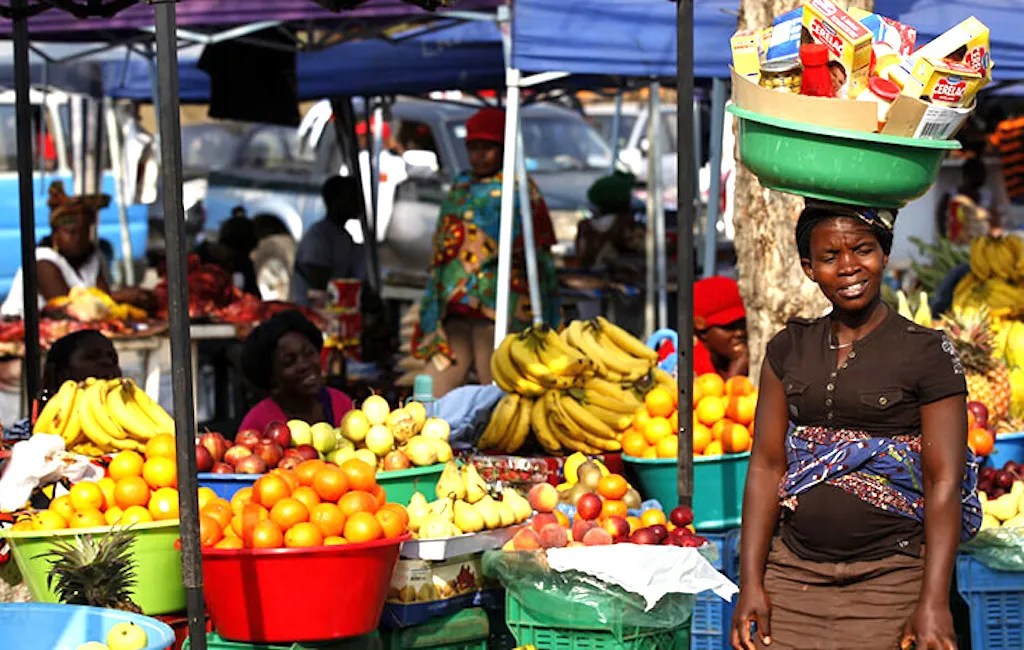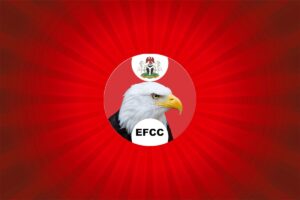Formalizing Our Informal Economy

By Victor Ogiemwonyi
Marketconversations.sub-stack.com
The informal sector of our economy is enormous and demands our attention. It employs the majority of our population and generates income that many rely on for survival.
I recently read the “Moniepoint” report on the informal sector, in Nigeria and it was a delight. What made this report stand out was the real nature of the data, the people behind it, and the deep insights the researchers uncovered.
The report found that most informal businesses (44%) generate only about ₦20,000 daily. Imagine the impact of helping them double this daily income. That result, would mean a 100% upliftment. That is what we should aim for. It is not difficult to achieve with commitment, and sincere purpose.
Over 40% of people in the informal sector have no savings whatsoever.
This means the ₦20,000 daily income is crucial for their survival. Furthermore, 42% of these businesses cannot last for 30 days without this income. A continuous micro-credit line can serve as a lifeline, helping them support their businesses to consistently earn this daily income.
The study also found that 79% of these businesses have experienced the high cost of doing business in the past year , just like everyone else in the economy. They specifically cited increases in supplier prices and transportation costs. This is, therefore, probably the best time to support these businesses to survive.
Why Support is Critical
The informal sector represents a large part of our economy. It primarily caters to the youth group (73% are between 18 and 44) and is dominated by youth and women. If we want them to create jobs for themselves, we must support them with micro-credits. Micro-credits are the key to the informal sector’s survival, a way to ensure its gradual growth, and a mechanism to regularize it into our formal economy. Supporting this group will always bear fruit.
Even with a low survival rate, which is common in this group, the small support provided by society will allow them to achieve a higher survival rate and create jobs. The few that grow and formalize their businesses into the larger economy will result in a win-win for society (I say society, not just Governments) because Communities can also create support for this group. A society focused on creating wealth through businesses that provide community services will work with Governments to make this possible.
Creating micro-credits to support micro-businesses is like funding education: it has multiplier effects. Educated minds create solutions for local problems. Micro-credits are one of the best welfare systems that can help people out of poverty and give them dignified jobs.
The informal sector is a large group in our society; giving them productive work takes away idle time, contributing to a safer environment and increasing our national productivity.
Job creation is no longer just about employing people in Government or large institutions. Today, job creation is more self-driven; people create their own jobs.
The Government can accelerate this trend by helping people start their own businesses and supporting them through the survival period. The good thing is that they are self-motivated; many in this group prefer to work for themselves and are happier doing so.
So, How Do We Do This?
Let me start by explaining my experience with Micro-Credits. Sometime in the year 2000, I sold an idea for a micro-credit scheme to the then Edo State Government. It became known as the “Edo State Micro Credit Scheme.”
Although there was no single micro-credit bank at the time, it was not a revolutionary idea. It was widely practiced in Asia, popularized by Dr. Mohammed Yunus. But it was new here. We ran a very successful pilot scheme for about two years. Strangely, the Government had other priorities. It failed to support it, past the pilot stage, despite the success of the pilot scheme.
We received a boost when Mrs Abike Dabiri-Erewa popularized the scheme on her Sunday TV program on NTA by covering one of our disbursement ceremonies.
This led to calls from Ondo State, Rivers State, and Senator Gbenga Daniel, who was running for Governor of Ogun State, at the time, saw an opportunity, we were introduced by Mr. Lekan Bello, who would later become his first Finance Commissioner, and we helped design a Micro Credit program that contributed to his first term win.
Our biggest support came from two wonderful people, Mr Isa Inuwa and Mr. charles Omonokhua both of the Bank of Agriculture. They saw the potential and were willing to support us with a large loan but needed State counterpart funding, which the state did not provide.
They supported us even more by engaging us in training programs in all their area offices to teach Micro – credit principles to their officials.
One crucial finding came out of the pilot program: the poor generally do not owe. We recorded a 93% repayment rate for the period where over 3,000 people benefited from the pilot scheme. We also found that our use of co-operatives as a disbursement platform worked well. This remains my recommended model for success.
Instead of the usual way of throwing money at attempts, to create businesses, with no systems built to ensure success, for the money thrown at the people and expecting results, why don’t we find micro-businesses that already exist and support them with a credit line?
A credit line provides leverage for the business. A well-managed credit line for these businesses will work magic with just a little help. Credit lets you buy more, and credit is the route to growth. I do not recommend micro-credits for start-up businesses; that is the domain of Angel investors and Venture Capitalists.
The mix-up of these two approaches has led to many failures in Government-supported attempts to create businesses for people.
My best model involves the following steps:
- A Fund must be created to support this initiative.
- The disbursement vehicle must be registered co-operatives.
- The credit line is granted to the co-operative, not to the individuals.
- The co-operative will grant credit to individuals within their groups but will be responsible for the repaymentt.
From my experience with micro-credits, the poor do not want to owe. You simply have to make repayments easy for them.
They do not understand bulk repayments. They must be schooled in the credit culture, that teaches them to take and repay so the money (or credit) becomes a permanent resource for their growth.
If you support a micro-business with ₦100,000 and let them repay ₦5,000 weekly, you can give them the same ₦100,000 every 21 weeks. This creates a credit line that allows an Akara seller, for instance, to buy wholesale beans and oil in bulk.
They can sustain the business by saving ₦1,000 daily to repay the ₦5,000 weekly installment, revolving the ₦100,000 every 21 weeks, to replenish their stock or inventories for resale.
Imagine having 1,000 of these co-operatives, with 21 members in a group and 7 in a sub-group.
It requires little supervision because they manage themselves and are self-sustaining.
The cash transfer scheme, the Government does now, can be enhanced as a micro credit scheme. Beneficiaries will be required to do some kind of micro business, so it can be meaningful and let them grow. In the US, President Clinton’s welfare reform, included, making people do some kind of work for what they got. Many choose to do work for real money.
The government’s attention should be focused on this, because money spent here goes directly to the people. You cannot go wrong when you spend money on the people.

Read Also: The Past, Present, and Future of Benin Arts and Tourism Gains








